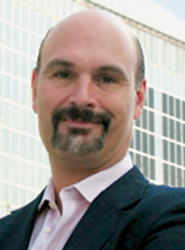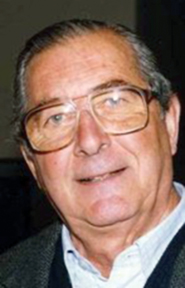Twenty years ago, a book titled “The Super Traders” set out to capture the “secrets and successes of Wall Street’s best and brightest” minds. Then, there were three national markets and 407.3 million shares traded a day. In today’s Part II of the April cover story are the perspectives of two more of those “best and brightest” minds on how trading has changed.
Here are the stories of Jon Najarian and Robert A. Scavone, two more Super Traders.
The Options Trader
Jon Najarian

Then: Founder and president, Mercury Trading
After a brief stint as a pro football player with the Chicago Bears, taught himself options trading. Sold Mercury in 2004, to Citadel.
Now: Co-founder, optionMONSTER and tradeMONSTER; CNBC contributor
Today, 95 percent of all trades on the Chicago Board Options Exchange are electronic. Essentially, the options industry has been taken over by the machines. Twenty years ago, the veterans on the floor taught the newcomers such as me how to trade. The skills were passed from generation to generation. Today, that is essentially all gone. Also, people still have relationships, but they are not nearly as important for business, because there is precious little face-to-face contact; it is essentially all anonymous. You get the order because you are the best bid or offer, and you have very little idea as to where it originated.
The democratization of the process has been very amazing, but at the same time it is pretty impersonal. There is almost zero growth or new blood coming into the options market. A generation ago, there was always the ability to sell your book to a newcomer. That doesn’t exist anymore. It is no longer a viable career path.
Looking back, I would say I am 90 percent pleased with the way the options business has evolved over the past 20 years. I would say that my major criticism would be the advent of the “maker-taker” model. I think it is ludicrous to be paid to provide liquidity to the market. If it is just on merit, that is a much fairer way for a market to function, but to have computers choke the system with quote traffic just so high-frequency trading firms can get paid for making markets doesn’t make sense to me. This is a good example of a bad change. Unfortunately, I don’t think anyone has the moral compass to change the status quo. The situation engenders a lot of high-frequency trading, which I believe to be a major negative for capital markets.
It has been an interesting transition, from my days as a floor trader and doing a little money management to today not floor trading at all and being a commentator for CNBC (for the past six years), running a successful options strategy website (optionMONSTER), developing the top-rated online brokerage firm (tradeMONSTER) and growing a wealth management business. We refer to it all as a “virtuous circle,” where our television appearances serve to promote our brokerage and wealth management businesses.
The Specialist
Robert A. Scavone

Then: Managing partner, Scavone, McKenna, Cloud & Co.
Began career in 1948 as a page on the New York Stock Exchange, running messages around the floor for brokers. Became specialist clerk in 1954 with Walters, Peck and Co. In 1965, acquired seat at Robb, Peck, McCoey & Co., a large specialist firm. From 1986 until 1992, ran Scavone, McKenna, Cloud & Co., a highly rated specialist organization on the New York Stock Exchange. Specialized in shares of CBS, Reynolds Metals, Golden West Financial, the Boston Celtics, Banco de Santander, ConAgra and Fiat. Key to success: “The most important factor in survival is inventory; you have to keep your inventory flexible.”
Now: Deceased. Passed away May 12, 2008.



